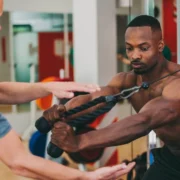Community Is King: How Life Time Approaches Group Exercise Post-Pandemic
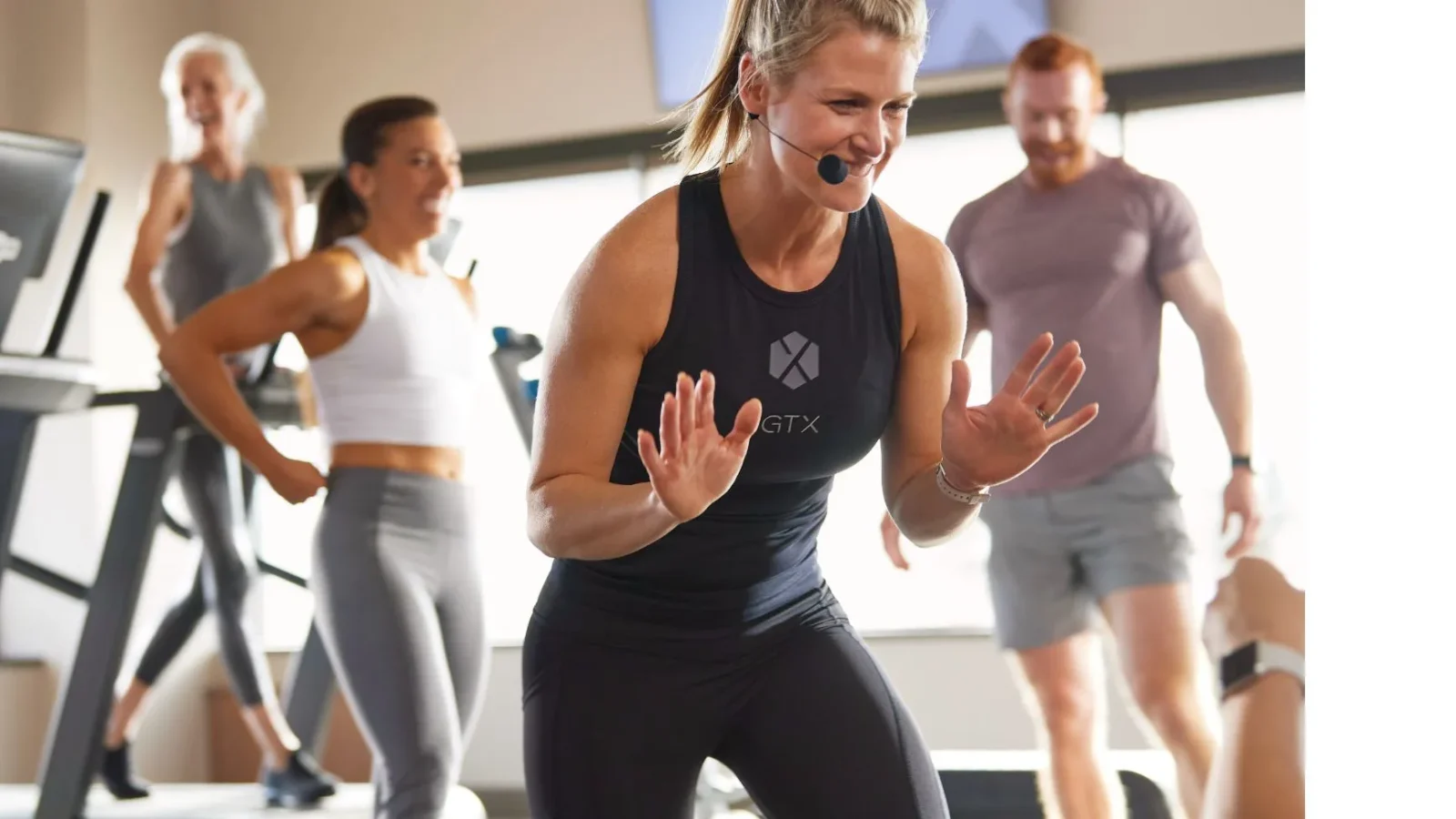
Life Time has seen demand for group fitness classes meet or far surpass pre-pandemic levels at its clubs across the country
If the pandemic was supposed to curb people’s appetites for in-person fitness, that’s not how things are shaking out for Life Time, which is seeing higher demand than ever for its group classes.
The luxury athletic country club operator stands out from traditional gyms for a few reasons, but perhaps most notable is Life Time’s commitment to offering a broad range of high-quality group fitness classes, both small and large.
Life Time offers everything from boxing to Barre and designs most of its classes in-house using a highly thought-out and structured approach to give members the feeling of entering a boutique space within a larger club.
Rob Glick, senior director of programming and innovation for group fitness, yoga and indoor cycling at Life Time, tells Athletech News that the company views group fitness as a “key essential business,” an ethos it’s doubled down on since COVID.
“It’s a huge member recruitment and member retention play for us,” Glick says of the variety of classes Life Time offers. “It’s one of the primary reasons people join, stay and find a huge value in their membership.”
Glick said the pandemic has slightly shifted the way Life Time thinks about group fitness, as people increasingly seek out the physical connection they lost during the many months of social distancing.
“It’s now about community and connection, even over content, “ Glick says. “A number of years ago, I would have been hyper-focused on content. But one of the lessons we learned from the pandemic was that there are a lot of great ways to get content, if anything there’s a gluttony of content. What’s missing is the community and the connection.”
That’s why, despite the predictions of a decline in in-person fitness, Glick says Life Time has seen demand for its group fitness classes meet or “far surpass” pre-pandemic levels at its clubs across the country.
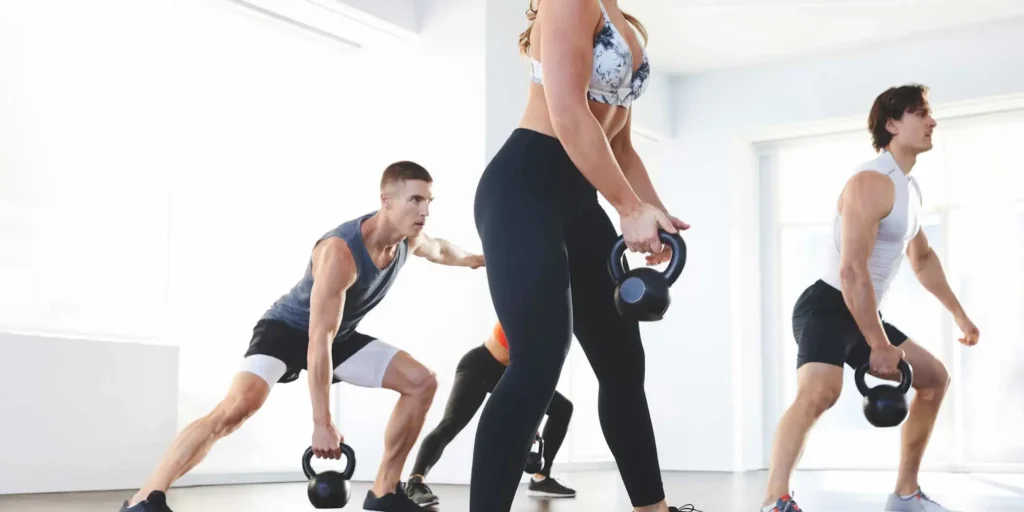
To meet the rising demand for social connection, Life Time has started designing its classes with “intentional community building elements,” Glick shares.
One way Life Time is forging social bonds is through ARORA, its new line of classes designed primarily for older adults but that can be attended by anyone seeking a gentler entry into group exercise. In addition to group classes, workouts and sports, ARORA features social events like pickleball mixers and weekly coffee meets. Instructors also encourage members to be social during class. For example, to celebrate the recently passed National Ice Cream Sundae Day, ARORA instructors asked members to share their favorite ice cream flavor with the rest of the class. The idea is to break the ice and get class members talking with each other.
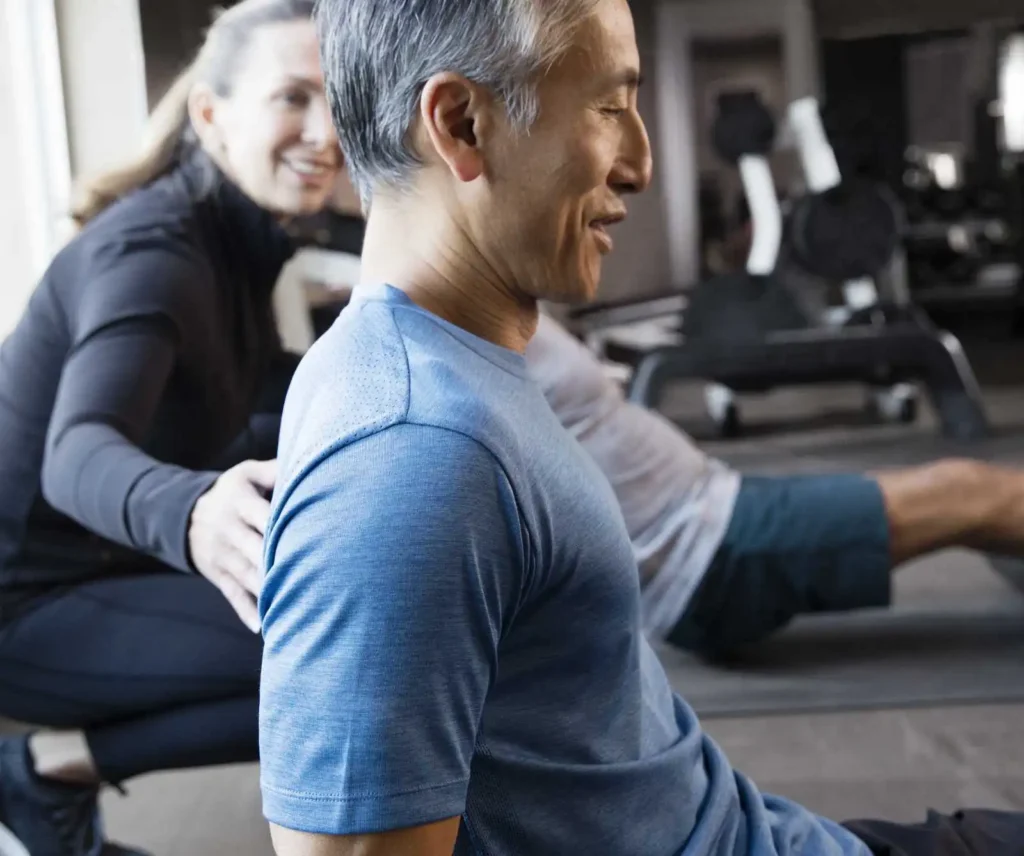
On the intense end of the exercise spectrum, Life Time is leaning into the growing popularity of boot camp-style workouts through its Signature Group Training line of classes, which includes GTX, Ultra Fit, Alpha Conditioning and Alpha Strength. Those classes all include some combination of fairly intense strength training and cardio exercises performed in a small-group setting.
“These bootcamp-esque experiences are a hybrid between personal training and large group training,” Glick explains. “They’re striking a huge chord with our members.”
That’s likely due in part to the social element they provide, where members push each other to their physical limits alongside like-minded fitness enthusiasts.
“It’s an area where people find a lot of camaraderie,” Glick says. “People like a strong, intense workout that they can do with kindred spirits, if you will, but that still has this really great group approach with excellent music and fantastic coaches.”
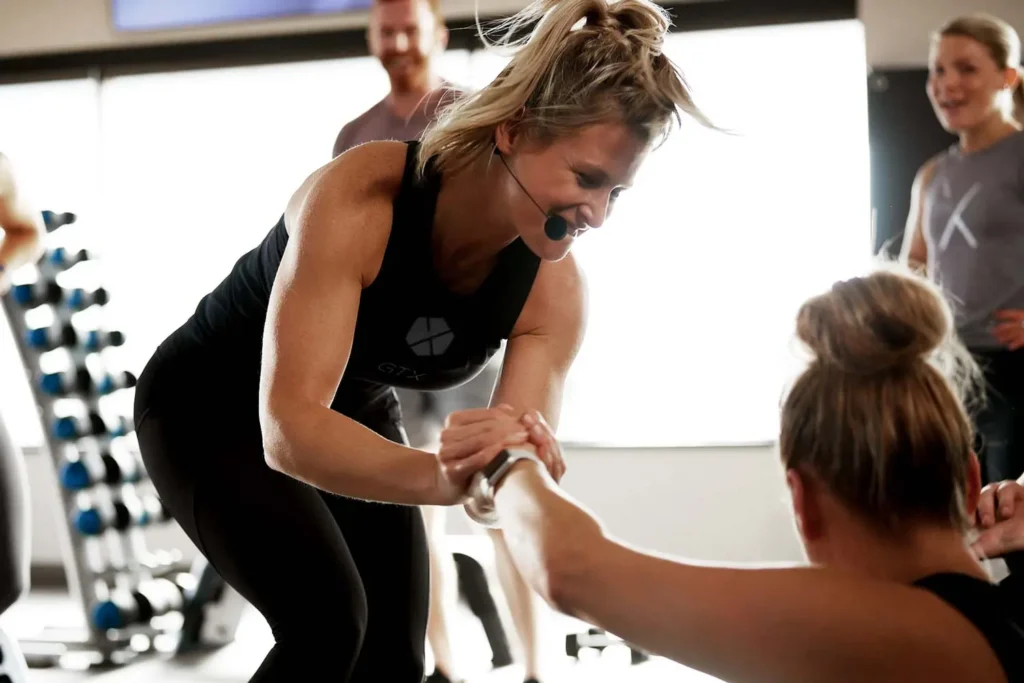
Glick compared the popularity of bootcamp classes to the more isolated experience of a cycling class, a modality which has by and large failed to sustain its pandemic-era surge in popularity, although it still maintains its fair share of loyal followers.
Across Life Time’s locations, modalities like yoga and Barre are also highly popular post-pandemic, according to Glick.
Life Time’s commitment to group fitness is far from a post-pandemic play, though. The company has been a leader in the space for years; it invests heavily in hiring the best program designers, the best instructors and in offering the best facilities for its members to enjoy.
“We look at our yoga studio as a yoga boutique within this lifestyle resort,” Glick says. “We look at our cycle studio in the same way, as well as our large group training and signature group training spaces.”
Because of that commitment, Life Time designs most of its classes in-house, including yoga, Pilates, Barre, boxing and cycling. The company’s only long-term partner in the group exercise space is Zumba, whose dance fitness classes are not only highly popular but allow for the type of customization that allows Life Time to stay true to its unique style of programming.
“Zumba gives you a structure but allows you to find yourself within that structure,” Glick says. “It’s not so black and white and rigid.”
Life Time has plenty of its own cache, but it also helps the athletic country club operator to have the Zumba brand name available on its class calendar.
“Zumba is unique in its ability to develop that consumer awareness where people say, ‘I love Zumba and I want to know my Life Time has Zumba,’” Glick says.
Whether it’s with Zumba or in one of its many proprietary classes, Life Time takes deliberate steps to ensure its members get the best group exercise experience possible. That starts with the instructor, who Glick says is the most important component of the company’s group fitness philosophy.
“We talk about places, programs and performers, but there is an order of importance, and the performer is by far the most important,” Glick says. “Live classes win when a great performer can touch people and those people can create relationships, friendships and community.”
In order to attract and retain high-quality instructors, Life Time believes its organization-wide commitment to group fitness sets it apart from other gyms. Life Time founder and CEO Bahram Akradi still teaches cycle classes, so instructors know they’re a top priority for the company.
“It’s wonderful to be a performer here because you feel valued, you know that the company cares,” Glick says. “If a piece of equipment is subpar, you don’t have to ask, ‘Can I throw it away?’ It’s already gone.”
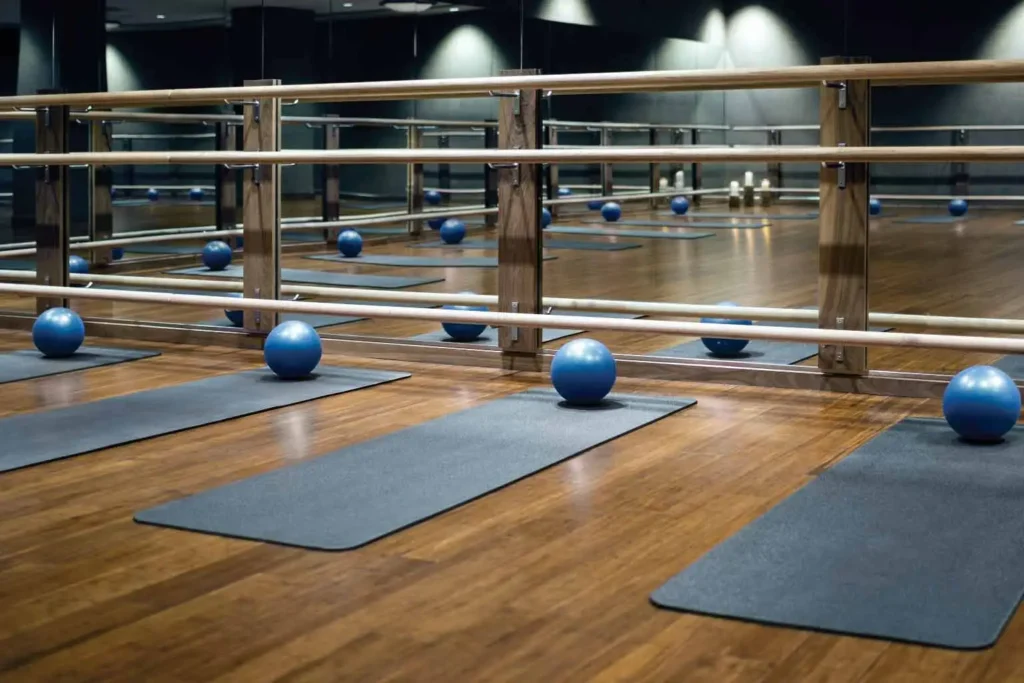
As Life Time looks ahead, Glick, like many other experts in the space, is noticing a change in the way people view fitness and wellness. He describes it as a “fully integrated thought process to wellbeing” and “training the human from the inside out, not the outside in.”
“I’ve been in this industry for a long time and it was very physical,” he says. “Now the workout might be very physical but it’s neat to see this shift to where it’s mostly about feeling better and having a healthier outlook on life, and the side effect is that you look better.”


